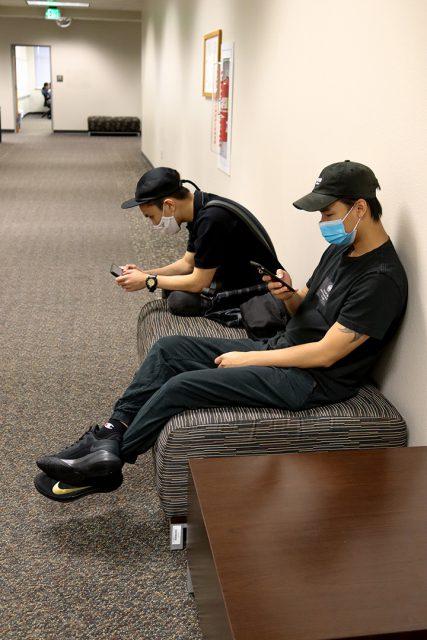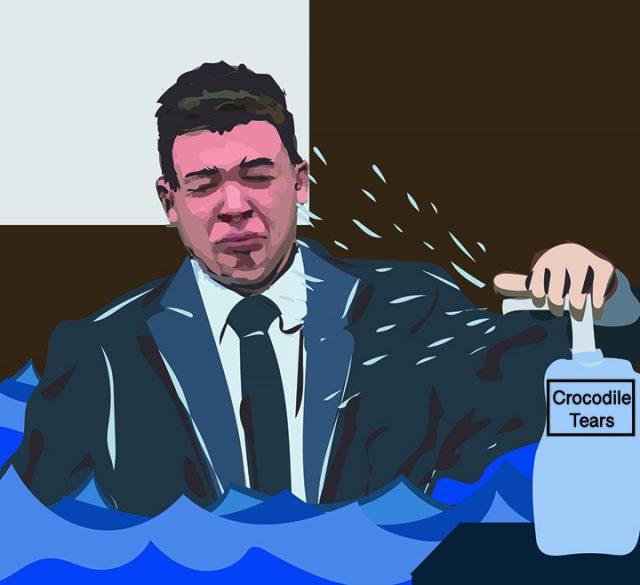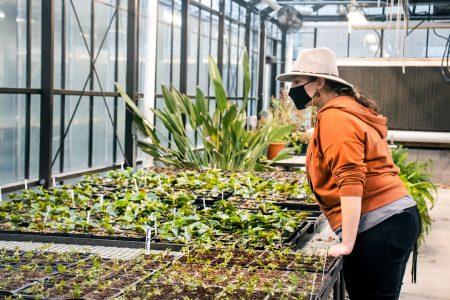
NW student Ardem Maynard inspects the tray of plants, evaluating their losses after the winter storm in February. The greenhouse is a staple of the science building.
Horticulture program persists in spite of challenges caused by pandemic, winter storm Uri
AZUL SORDO
photo editor
A soft glow emanates from within the glass-paneled walls of two greenhouses, the steady hum of their ventilators echoing through an otherwise silent NW Campus.
Nestled in this corner of campus, horticulture students usher in the spring season and all its lush greenery.
Until now, they’ve remained largely under the radar.
“We’re the best kept secret at TCC, if not Fort Worth,” horticulture program coordinator
David Bulpitt said.
Despite many classes transitioning to online or hybrid formats, the horticulture program has seen a 30% increase in enrollment this semester, according to Bulpitt.
Between the fall and spring semesters, Bulpitt reported 80 students enrolled in the introductory horticulture class — the highest he’s seen in his six years at TCC.
This trend exists even beyond the academic sphere.
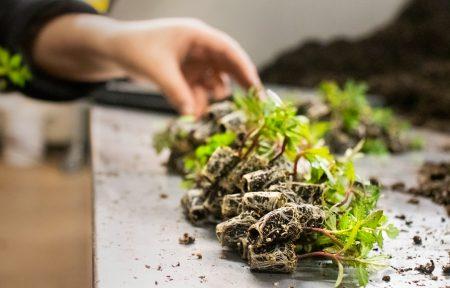
NW horticulture club president Chrisynthia Rodriquez carefully piles the plant plugs suited for transfer to a starter tray.
According to a survey by Garden Center Magazine, 71% of independent gardeners located in the U.S. or Canada saw their sales increase significantly since the COVID-19 outbreak.
“Because people have to stay home so much, they’re more attuned with their home surroundings and want to beautify them or whatnot, and I think that’s the core of it,” Bulpitt said.
Bulpitt is optimistic the redevelopment project taking place on campus will allow their department to expand in size, preparing them for the influx of new students.
“We’re really the only game in the metroplex,” Bulpitt said. “I think if people realize more that we’re here, that would just explode interest even more.”
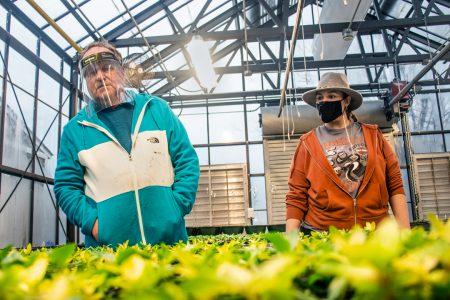
Program coordinator David Bulpitt demonstrates the visual indicators of iron deficiency in vinca plants. They are one of the few plants that survived the freezing temperatures.
Horticulture lab manager David Cole believes this green movement reaches beyond the social isolation of the pandemic, citing growing interest in eco-conscious lifestyles.
“There’s a part of us that wants to get back to being in the natural world — cooperating with it, the beauty of it, the mystery of it, and even the satisfaction of hard work in a vegetable garden and seven months later getting to eat that with your family for dinner,” Cole said. “It’s a very empowering thing.”
NW student Arden Maynard doesn’t mind digging her freshly painted nails deep into damp soil — as an aspiring viticulturist, she enjoys the hands-on approach.
“I was nervous about the online part,” Maynard said. “We’re all plant people, so we like to get our hands dirty.”
Unfortunately, the challenges didn’t end with the online transition. When February’s record-breaking winter storm cut all power from the campus greenhouses, the plants inside quickly succumbed to the cold.
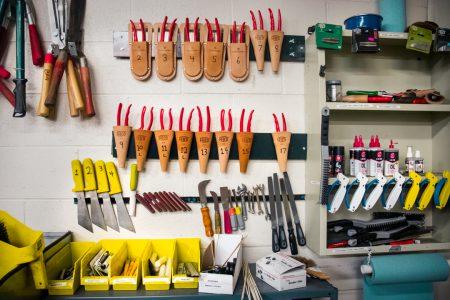
A wall of horticulture-related tools in the potting room of NW Campus. Students will learn how to properly use many of these tools, as well as how to maintain them.
Students lost nearly two-thirds of all plant life.
There was little to do but move forward, Bulpitt said.
Horticulture students sorted through packages of seedling trays, carefully moving the surviving plugs into larger trays.
It seems tedious, but for horticulture club president Chrisynthia Rodriquez, the reward lies in the work itself.
Rodriquez tenderly held up a marigold seedling no bigger than her pinkie finger.
“This is life. You’re helping nurture life,” Rodriquez said. “You’re kinda giving back to the planet.”
For many academic programs, these trials would have spelled the end of their time at TCC, but the horticulture program’s roots run deep.
“We have all ages, all demographics…coming from all different places,” Cole said. “Then we all get together and it’s kind of like it all belongs.”

























